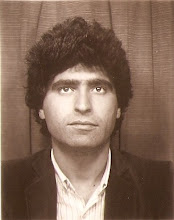The Metamorphosis
die Verwandlung
by: Franz Kafka
The Metamorphosis is a short novel published in 1915. The premise of the story is a traveling salesman named Gregor Samsa, working hard to support his family who comes home for a night and wakes to find himself transformed into a hideous, bug-like vermin. For the majority of the novel, the story follows Samsa being hidden away by his family who are disgraced and revolted by his new appearance and how they treat him with disgust. The story however, is rife with symbolism and metaphoric implications. What is widely agreed upon by the literary community is that The Metamorphosis is really a tale of modern man's general alienation with humanity. Samsa is a model for modern men who are obligated to live within a society that constrains them and keeps them at bay and prostrated by punishing them with feelings of inadequacy and guilt when they fail to measure up to a set of standards created by a disengaged people.
In essence, Samsa was an insect long before he physically transformed into one. By allowing himself to lose all his individuality and personal liberty, in order for his parents to live out a life of comfortable luxury, he had already given up the traits that make a person human. This is also apparent in the conclusion of the novel after Samsa has died and it is implied that his parents will have moved on to Samsa's unsullied sister. This could be construed as a metaphor for a capitalist society in which the majority give up their free-will and the qualities that define them as individual humans to the whims of the few. We are controlled, like Samsa, by fear of shame, failure, an d rejection.
The Metamorphosis could also be construed as a metaphor for Franz Kafka's own life. Obviously the similarities in their names is evident. But also, Kafka suffered from Tuberculosis and it is evident in his diaries that he was afraid of being seen as repulsive by this family and being a burden. Not only this but, just as Samsa is in the story, Kafka was taken care of by his sister. He also died of starvation, just as Samsa does in the end of the novel. Kafka was an individual who suffered throughout his life from feelings of shame and heavy social anxiety.
